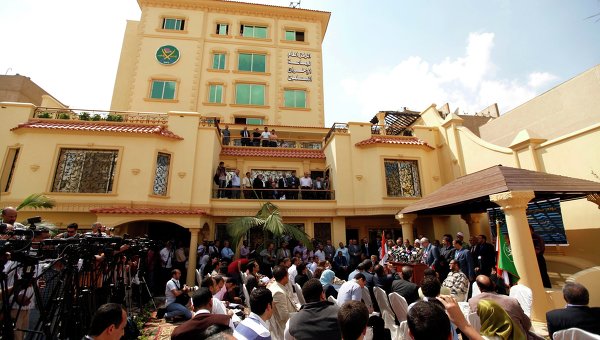
Various false notions are making the rounds in the media and research centers about the relationship between the Muslim Brotherhood (MB) in
Those circulating the rumors have taken as proof the fact that President Mohamed Morsi – who hails from the Muslim Brotherhood – retired senior military leaders and appointed MB members to prominent positions in the state, as well as the fact that, for the first time, a veiled news anchor appeared on state television. These analyses, however, are superficial, and do not examine the nature of the Egyptian regime, dating back to July 1952.
Those talking about the Islamization of the state speak as though
In the semi-liberal age extending from the 1919 Revolution to 1952,
Amin al-Mahdi, the author of ‘The Arab-Israeli Conflict: Crisis of Democracy and Peace’ gives examples of how the 1952 regime Islamicized the state in an article he published in al-Hayat, entitled ‘How Abdel
In a conference organized by the Coptic Evangelical Organization for Social Services several years ago, Dr. Gaber Asfour, who at the time was Secretary-General of the Supreme Council for Culture, said that
This is not the MB’s first experience in power. 10 of the 12 Free Officers who staged the July 1952 military coup were members of the Brotherhood, according to Mahmoud Labib, the former leader of the Muslim Brotherhood’s armed wing. Additionally, in his memoirs, Khaled Mohi El Din, a member of the Free Officers, details the ongoing relationship between himself, Gamal Abdel Nasser and the Brotherhood. At the time it was not possible to reveal the Brotherhood identity of the officers who staged the coup because they would have been rejected by the people, since at that time, the organization was not popular in comparison with the Wafd Party.
In 1954, the two factions entered into a phase of mock hostility, established to create the military-MB duality that the July 1952 regime exploited, up until the January 2011 uprising.
An overview of recent events in
After the January 2011 uprising, the military and Brotherhood had shared fears; the military’s concerns were over a loss of power, while the Muslim Brotherhood feared the uprising would lead to a liberal democratic state which would undermine their goals for the country. The two factions cooperated together, with each move made with the aim of maintaining a balance between the continuation of the military’s influence and the preservation of the religious state.
More than two decades ago, secular intellectual Farag Foda was assassinated by two Islamists, while the year after his murder, Mubarak bestowed the State Incentive Award on Sheikh Mohammed al-Ghazali, who issued the fatwa legitimizing Foda’s slaying. Before his death, Foda prophesized what would happen: "The vicious circle is beginning its cycle. In the absence of a secular opposition, military rule will lead to religious rule and religious rule will only be uprooted by a military coup that, after a long or short while, will hand things back to religious rule."
Magdy Samaan is a visiting fellow at the Rafik Hariri Center for the Middle East and a 2011 MENA Democracy Fellow at the World Affairs Institute.
Photo Credit: Reuters
Image: MB%20Headquarters.jpg

